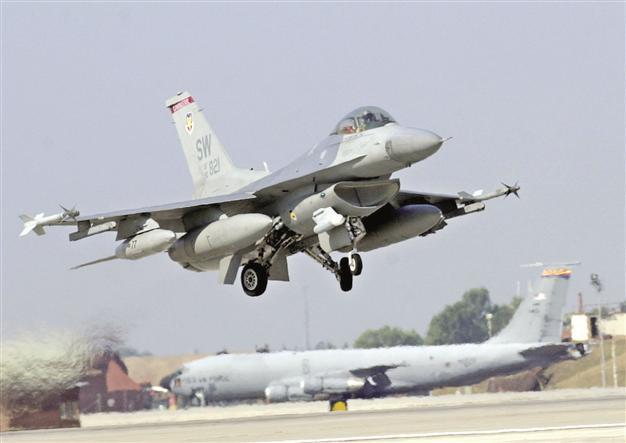Turkey eyes local jet for full independence: Defense minister
IĞDIR - Anadolu Agency

Localization of the defense industry production is key for a country’s independence, Minister Yılmaz says.
Turkey is setting its sights on the ambitious target of producing its own local fighter jet to become “fully independent” in its ground, naval and air defense, National Defense Minister İsmet Yılmaz has said.“We manufacture our own ships and all of our land vehicles, including tanks. We also manufacture our own helicopter and training jets. Another thing we are planning is producing a fighter jet,” the minister told state-run Anadolu Agency on Dec. 14.
Yılmaz said Turkey’s main target is being able to produce its ground, naval and air defense arms domestically and manufacturing a local fighter jet would complete the missing part.
“We will hopefully be fully independent and fully powerful when we accomplish this,” Yılmaz said. “It is not possible to talk about complete independence if you don’t have a defense industry. That is why we keep our defense industry investments.”
The Turkish defense industry is currently meeting 55 percent of the Turkish army’s needs, according to the minister, who said the government’s aim is to boost the industry to make it fulfill all of the army’s needs by 2023.
“Our projects and works for this end are continuing,” he said.
Earlier this year, Turkey requested bids from global motor companies GE, Rolls-Royce and Pratt & Whitney to present bids to power the future fighter jet.
The government has been expressing its intentions to develop what will become the first ever domestically produced Turkish fighter, dubbed the TF-X, but several aspects of the ambition have been approached skeptically by sector representatives.
Turkey has long claimed it would design, develop and manufacture its own fighter jet, but some analysts and Turkish defense industry experts have been raising questions about feasibility of the program as well as Turkish industry’s technical capacities.
















